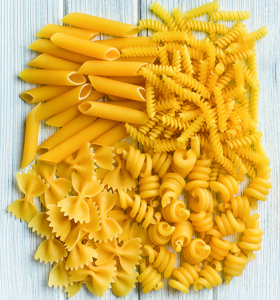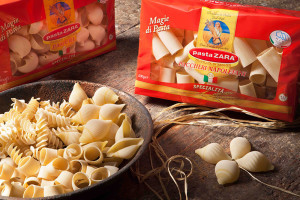 CHEP, world leader as for pallet pooling and containers, announces it entered into a contract with Pasta Zara joint-stock company. This pasta manufacturing plant in Veneto ranks first among the exporters of Italian pasta.
CHEP, world leader as for pallet pooling and containers, announces it entered into a contract with Pasta Zara joint-stock company. This pasta manufacturing plant in Veneto ranks first among the exporters of Italian pasta.
14.5% of Italian dry pasta consumed in the world is produced by Pasta Zara. The export of Pasta Zara reaches 106 Countries: 51% of export concerns EU Countries, 14% the rest of Europe, 12% Scandinavian Countries, 10% the Middle East, 5% the Far East, 4% Africa, 3% America, and 1% Australia and Oceania. In recent years Pasta Zara increased its presence in different markets and also in Italy.
This company has always distinguished itself for a production that emphasizes respect for environment, land, and work. Energetically, the company, in its three plants, uses solar panels and self-produced electricity and thermal energy through cogeneration, obtained with high energy saving endothermic turbocharged engines. Moreover, Pasta Zara from the one hand also uses products from organic farming, which protect the environment, and on the other hand it is committed to improve living conditions of animals raised for food production, in particular in order to end the use of battery cages for laying hens, encouraging a shift to alternative livestock, namely free-range ones.
 From the viewpoint of logistics, Pasta Zara has renewed its partnership with CHEP, reiterating its green line. Thanks to its pooling system, it reuses pallets, boxes, and containers with a consequent reduction in consumption and waste of raw materials. CHEP collects the empty pallets at the points of discharge and repairs the damaged pallets recycling the material. CHEP pallets also boast wood whose origin is certified, because the company is the only one to have obtained the certificates issued by two of the most respected organizations for forest management in the world (Forest Stewardship Council -FSC- and Programme for the Endorsement of Forest Certification -PEFC-). CHEP has provided an analysis of the environmental impact, estimating that, with this service, Pasta Zara will reduce CO2 emissions by 79%, landfill waste by 89%, and use of wood by 86%.
From the viewpoint of logistics, Pasta Zara has renewed its partnership with CHEP, reiterating its green line. Thanks to its pooling system, it reuses pallets, boxes, and containers with a consequent reduction in consumption and waste of raw materials. CHEP collects the empty pallets at the points of discharge and repairs the damaged pallets recycling the material. CHEP pallets also boast wood whose origin is certified, because the company is the only one to have obtained the certificates issued by two of the most respected organizations for forest management in the world (Forest Stewardship Council -FSC- and Programme for the Endorsement of Forest Certification -PEFC-). CHEP has provided an analysis of the environmental impact, estimating that, with this service, Pasta Zara will reduce CO2 emissions by 79%, landfill waste by 89%, and use of wood by 86%.
, Vice President of Pasta Zara joint-stock company, comments: ‘The attention to eco-sustainability is a central issue for our company: for us it is essential to provide quality and we are aware that such a product as our one comes from the environment and a work organized to the best. Therefore, our collaboration with CHEP was natural, because we work in the same direction, keeping in mind that quality and environmental sustainability go at the same pace’.
